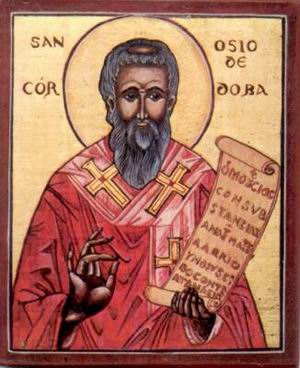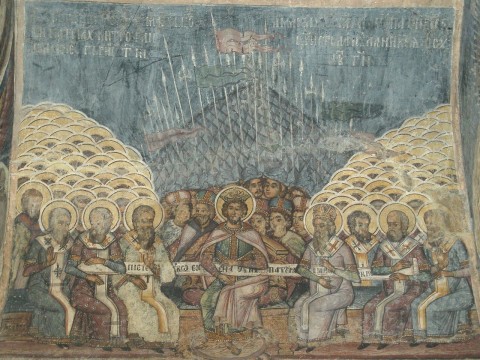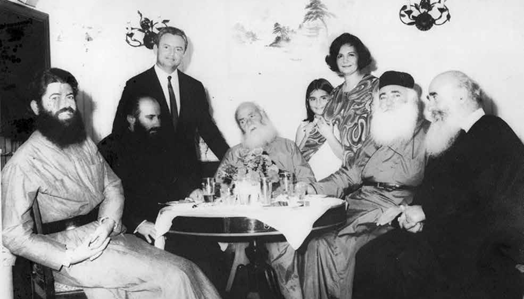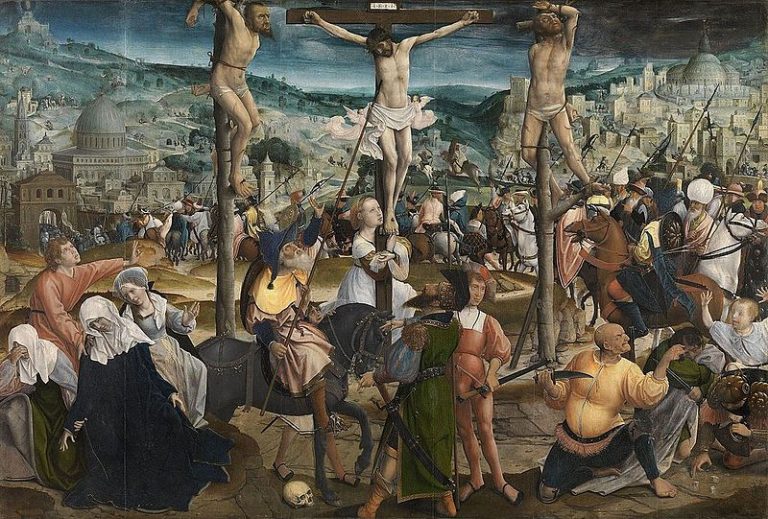Saint Hosios, Bishop of Cordova
The saint was born in 256 AD, probably in the town called Cordoi, now Cordoba, Spain. He was faithful and devout, which is why he was called by the Church to serve it as bishop of the aforementioned city. In the early years of the appearance of the Arian strife, we find Bishop Cordouis Hosius in all efforts to settle and combat it. Sozomenos informs us that he was chosen by the Emperor Constantine to be sent by him to find a solution to the Arian mutinies in Egypt:
“Thinking thou thyself able to foreknow evil before it is divided into many, he casts out men of both faith and life solemn, and of the confessions of the doctrine, which have flourished in the times ahead, dividing them in Egypt for the sake of the doctrine.”
The historian Socrates, in fact, points out the special esteem and respect that Constantine had for the bishop Hosios with the following words:
“He fell͵ by a man of merit͵ whose name was Hosios͵ and of one of the cities in Spain͵ called Kudroubis͵ he served as bishop; all this I loved him and the king was honoured by him”.

He then presided over the Council of Antioch, which paved the way for the convening of the First Ecumenical Council in Nicea. He then took the lead in that Council, as well as in the condemnation of Arius and in the creation of our Symbol of Faith. Furthermore, the Latin bishop was held in high esteem, not only by the Emperor, but also by church leaders and the common people. His acceptance was universal, which is why Sozomenos states that:
“The anguish of the persecuted who have fallen from the churches, as the holy bishop of Cordoba”.
Finally, he was expelled by the Arian emperor Constantius and suffered many difficult situations because of his supportive attitude towards Athanasius the Great and the decisions of the First Ecumenical Council. Finally, he was laid to rest in the year 358 AD and his memory is commemorated on 27 August.
The Mission and the Ecumenical Councils
The origin of the Ecumenical Councils is the Apostolic Council that took place in Jerusalem in the first half of the 1st century AD. There the apostles were called upon to solve problems that arose in the early Church. This legacy was followed by the local Churches, convening local councils to address issues of concern to them. But for issues that concerned the whole body of the Church, Ecumenical Councils were held. The Ecumenical Councils were convened by the Emperor, at the urging of ecclesiastical figures, with the ultimate aim of promoting Orthodoxy and the peace of the state. St. Nicodemus the Athonite mentions in his “Rudder”: “Therefore and in spite of everything, it is not the Divine Scripture, but the Ecumenical Council that is proclaimed the ultimate judge of Church affairs” and concludes that “no one can oppose the Ecumenical Councils, being pious and orthodox, but simply and indiscriminately everyone is charged to be persuaded by them. For he who opposes them, and is opposed to them, opposes them, and opposes the Holy Spirit, who is spoken through the Ecumenical Councils, and becomes a heretic and a damned man.”

Therefore, the Ecumenical Council is not only an institution left as a legacy by the Apostles, but also one of the ways in which the Holy Spirit guides the Church. Its purpose is to resolve the various problems that arise within the Church, culminating in heresies, since all the Ecumenical Councils have acted as ecclesiastical courts and condemned heresies that hurt the body of Christ, the Church.
If the mission is the spreading of Orthodoxy to nations of other religions or heterodoxy, the institution of the Ecumenical Councils is the preservation of Orthodoxy. It makes it unadulterated, genuine and unchangeable, with the aim of spreading it throughout the world.




